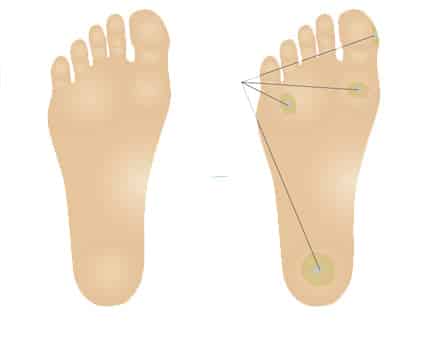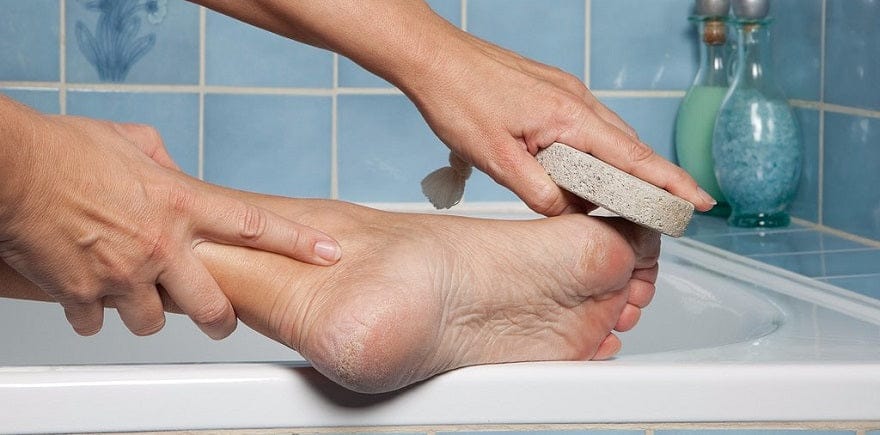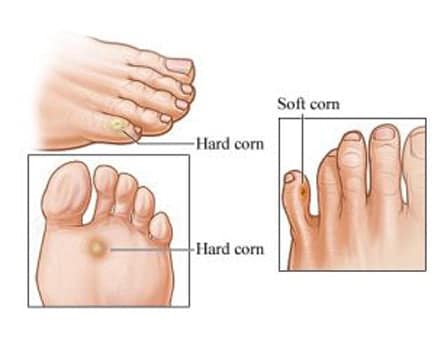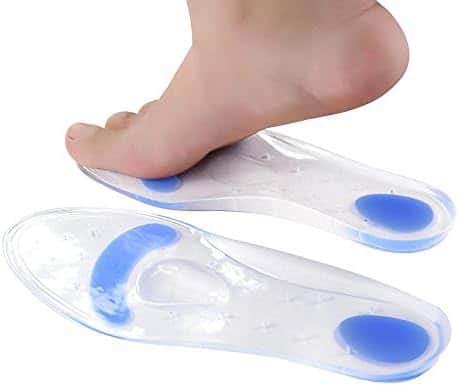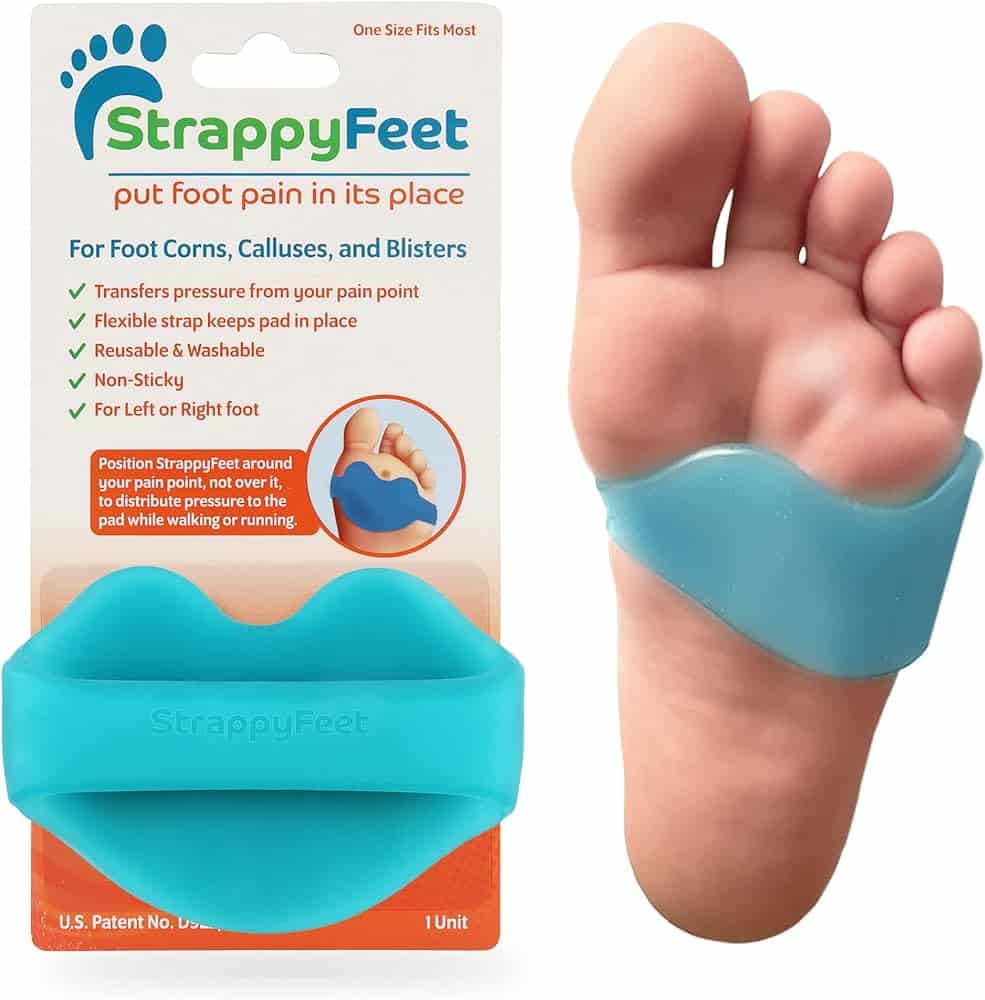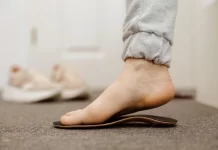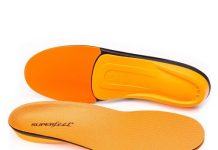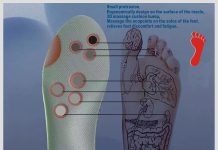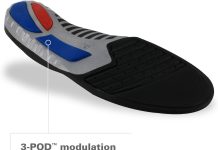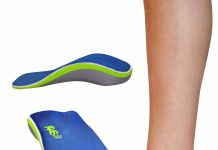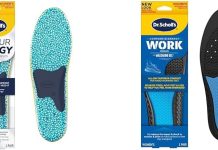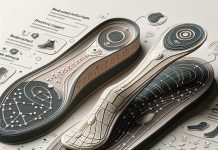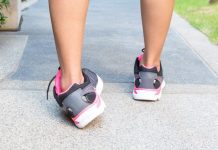If you’ve ever experienced the discomfort of calluses and corns on your feet, you may have wondered if there is a way to prevent them. Well, the solution could be as simple as slipping on a pair of insoles. Designed to provide support and cushioning to your feet, insoles can help distribute pressure and reduce friction, two common causes of calluses and corns. In this article, we’ll explore the potential benefits of using insoles as a preventive measure, helping you take steps towards healthier, happier feet.
This image is property of insoles.com.
What are Calluses and Corns?
Calluses and corns are common foot conditions that occur as a result of continuous friction or pressure on the skin. They are thickened areas of skin that develop on the feet, typically on the soles, heels, or toes. While they may seem similar, there are some key differences between calluses and corns.
Definition and causes of calluses
Calluses are thickened patches of skin that form in response to repeated friction or pressure. They tend to be larger and broader than corns, and they usually develop on weight-bearing areas of the feet. Common causes of calluses include wearing ill-fitting shoes, excessive standing or walking, and abnormal foot structure.
Definition and causes of corns
Corns, on the other hand, are smaller, more concentrated areas of thickened skin that have a hard, central core. They often develop on non-weight-bearing areas of the feet, such as the tops of the toes or between the toes. Corns are typically caused by friction or pressure from tight shoes, toe deformities, or excessive bending or rubbing of the toes.
Differences between calluses and corns
While calluses and corns both result from friction or pressure, they have distinct characteristics. Calluses are larger and more diffuse, covering a broader area of the foot, whereas a corn is usually smaller and concentrated. Calluses have a more even, thickened layer of skin, while corns have a hard, central core that can cause intense pain. Understanding these differences can help in the prevention and management of these foot conditions.
The Impact of Calluses and Corns on Feet
Calluses and corns can have a significant impact on the feet and overall foot health. They can cause pain, discomfort, and hinder your ability to walk or stand for long periods. Furthermore, if left untreated, calluses and corns can lead to potential complications.
Pain and discomfort
When calluses or corns develop, they can cause pain and tenderness in the affected areas. The thickened skin may become irritated, inflamed, or even develop small cracks, causing discomfort with every step. The pain can range from mild to severe, depending on the size and location of the callus or corn.
Difficulty in walking and standing
Due to the discomfort caused by calluses and corns, individuals may experience difficulty in walking or standing for extended periods. The pain and pressure can alter your gait, leading to an unnatural way of walking that can strain other parts of the body, such as the knees, hips, or lower back. This can further compound the discomfort and impact your overall mobility.
Potential complications
If calluses or corns are left untreated or if there is continuous friction or pressure, they can lead to potential complications. These may include infected corns, where bacteria can enter through cracks or open sores, causing redness, swelling, and pain. Furthermore, severe calluses or corns may ulcerate, creating deeper wounds that can be susceptible to infection and require medical attention. Preventing the development of calluses and corns is crucial to avoid these complications.
Understanding Insoles
Insoles, also known as shoe inserts or footbeds, are designed to provide additional support, comfort, and stability to the feet. They are placed inside shoes to enhance the foot’s biomechanics and alleviate common foot problems. Understanding the benefits and types of insoles available can help you make an informed choice to prevent calluses and corns.
What are insoles?
Insoles are inserts that can be made of various materials, including foam, gel, or custom-molded options. They are designed to fit inside shoes, providing cushioning, support, and shock absorption. Insoles can help distribute weight more evenly across the foot, reducing pressure points and minimizing the risk of developing calluses and corns.
Benefits of using insoles
Using insoles can provide several benefits for foot health. They can improve overall comfort, reduce foot fatigue, and enhance stability while walking or standing. Insoles also help absorb shock and impact, reducing stress on the feet and lower limbs. By providing proper arch support, insoles can help maintain correct foot alignment and prevent excessive pronation or supination, which can contribute to the development of calluses and corns.
Types of insoles available
There are different types of insoles available to cater to various foot conditions and individual preferences. Some common types include cushioned insoles, arch support insoles, and orthotic insoles. Cushioned insoles provide additional padding and shock absorption, while arch support insoles provide extra support to the foot’s natural arch. Orthotic insoles are custom-made to address specific foot issues and provide personalized support. Choosing the right type of insole is essential for preventing calluses and corns effectively.
How Insoles Can Help Prevent Calluses and Corns
Insoles play a crucial role in preventing the development of calluses and corns. By addressing the underlying causes and providing support to the feet, insoles can effectively reduce friction, pressure, and excessive rubbing.
Proper weight distribution
Insoles are designed to distribute weight more evenly across the foot, reducing the pressure on specific areas. By providing proper support and cushioning, insoles help prevent localized areas of excessive friction, which can lead to callus or corn formation. This even weight distribution can help alleviate pressure points and promote healthier foot mechanics.
Cushioning and shock absorption
Insoles with adequate cushioning properties can absorb shock and impact while walking or running. This helps reduce the forces transmitted through the foot, thereby reducing the risk of callus or corn formation. The cushioning provided by insoles helps protect the skin from excessive pressure, minimizing the chances of developing thickened areas of skin.
Correcting foot alignment
Poor foot alignment, such as excessive pronation or supination, can contribute to the development of calluses and corns. Insoles with arch support or orthotic features can help correct foot alignment and prevent excessive friction or pressure on specific areas of the foot. By keeping the foot in a neutral position, insoles reduce the risk of callus or corn formation caused by abnormal foot mechanics.
This image is property of treadlabs.com.
Choosing the Right Insoles for Callus and Corn Prevention
Choosing the right insoles is crucial in preventing calluses and corns effectively. Consider these factors to ensure you select the most suitable insoles for your specific needs.
Arch support
Proper arch support is essential for maintaining correct foot alignment and preventing excessive pressure on the feet. Insoles with built-in arch support can help distribute weight more evenly and reduce the risk of calluses or corns. Individuals with high or low arches should look for insoles that offer the appropriate support to their specific arch type.
Material and thickness
Insoles come in a variety of materials, each with its own benefits. Consider the level of cushioning and shock absorption required for your particular activities and foot conditions. Thicker insoles may provide more cushioning but may occupy more space inside the shoe. Finding a balance between comfort and fit is important when choosing the right material and thickness of insoles.
Customizable insoles
For individuals with specific foot issues or unique foot shape, customizable insoles may be the best option. These insoles are designed to be molded or trimmed to fit your feet perfectly. Customizable insoles provide personalized support and can address individual foot mechanics, ensuring optimal prevention against calluses and corns.
Proper Usage and Maintenance of Insoles
To maximize the benefits of insoles, proper usage and maintenance are essential. Follow these guidelines to ensure the longevity and effectiveness of your insoles.
Inserting insoles into shoes
When inserting insoles into shoes, make sure they sit flat and snugly inside the shoe without slipping or causing discomfort. Position the insoles so that they align with the arches of your feet and do not create any pressure points. If necessary, remove the existing shoe insole before placing the new insole to optimize fit and comfort.
Replacing worn-out insoles
Insoles will eventually wear out over time, so it is important to monitor their condition regularly. If the insoles show signs of wear, such as flattened cushioning or loss of shape, it is time to replace them. Worn-out insoles may not provide adequate support and may contribute to the development of calluses and corns.
Cleaning and caring for insoles
Keep your insoles clean by regularly removing them from the shoes and washing them according to the manufacturer’s instructions. This can help eliminate odor-causing bacteria and maintain their cushioning properties. Avoid exposing insoles to excessive heat or direct sunlight, as this can affect their integrity. Proper care and maintenance of insoles will ensure their longevity and effectiveness in preventing calluses and corns.
This image is property of insoles.com.
Other Measures to Prevent Calluses and Corns
While insoles play a significant role in preventing calluses and corns, they are just one piece of the puzzle. Incorporating other preventive measures into your foot care routine can provide optimal results.
Wearing properly fitting shoes
Wearing shoes that fit properly is essential in preventing calluses and corns. Avoid tight or narrow shoes that can increase friction and pressure on the feet. Opt for shoes with a wide toe box that allows your toes to move freely and comfortably. It is also important to choose shoes made from breathable materials to promote air circulation and minimize moisture, which can contribute to callus or corn formation.
Regular foot hygiene
Maintaining good foot hygiene is crucial for preventing calluses and corns. Clean your feet daily with mild soap and warm water, paying extra attention to the areas where calluses or corns tend to develop. Gently exfoliate your feet to remove dead skin cells and prevent the buildup of thickened skin. Dry your feet thoroughly, especially between the toes, to avoid moisture accumulation.
Using moisturizers
Applying moisturizers to the feet can help keep the skin soft and supple, reducing the likelihood of callus or corn formation. Look for moisturizers specifically formulated for feet and apply them regularly, especially after bathing or exfoliating. Avoid applying moisturizers between the toes, as excess moisture in that area can promote fungal or bacterial growth.
Consulting a Podiatrist for Callus and Corn Management
If you are experiencing persistent or severe calluses and corns, it is advisable to consult a podiatrist for professional assessment and advice. A podiatrist is a foot specialist who can evaluate your foot condition, identify the underlying causes, and provide appropriate treatment options.
Professional assessment and advice
A podiatrist can thoroughly examine your feet and identify any contributing factors that may be causing calluses and corns. They can assess your foot mechanics, gait, and footwear choices, and provide valuable advice on how to prevent further development of calluses and corns. They can also recommend specific insoles or foot care products tailored to your individual needs.
Treatment options for existing calluses and corns
In addition to preventive measures, a podiatrist can offer treatment options for existing calluses and corns. They may use specialized tools to gently remove the thickened skin, relieving the pain and discomfort associated with these conditions. Depending on the severity of the callus or corn, other treatment modalities, such as padding, orthotics, or medication, may be recommended.
Specialized insoles and foot care products
Podiatrists can provide guidance on selecting specialized insoles and foot care products that are most suitable for your foot condition. They can assess your specific needs and recommend insoles with custom features or prescribe orthotic insoles to address any underlying foot problems contributing to calluses and corns.
This image is property of Amazon.com.
Common Myths About Calluses, Corns, and Insoles
Dispelling common myths about calluses, corns, and insoles can help you make informed decisions about your foot care and prevention strategies.
Myth 1: Calluses and corns are the same
Although calluses and corns share similarities, they are not the same. Calluses are more diffuse, while corns have a hard, central core. They form in different locations and can have different causes. Understanding these differences is important in preventing and managing these foot conditions effectively.
Myth 2: Insoles can completely eliminate calluses and corns
While insoles can help prevent the development of calluses and corns, they may not completely eliminate existing ones. Insoles provide support and cushioning, reducing friction and pressure on the feet. However, for effective treatment of calluses and corns, it is essential to combine insole use with other strategies such as proper foot hygiene and professional care.
Myth 3: Any type of insole can prevent calluses and corns
Not all insoles are created equal, and different types of insoles serve various purposes. The choice of insole should consider individual foot mechanics, specific foot conditions, and personal comfort preferences. Customization options, such as arch support and orthotic features, can provide tailored prevention against calluses and corns.
Conclusion
Insoles play a vital role in preventing calluses and corns by providing support, cushioning, and correcting foot alignment. They help distribute weight more evenly, absorb shock, and minimize excessive friction and pressure on the feet. When combined with other preventive measures like wearing properly fitting shoes, maintaining good foot hygiene, and using moisturizers, insoles offer optimal prevention against calluses and corns. If you are experiencing persistent or severe calluses and corns, seeking professional advice from a podiatrist is recommended. By incorporating a comprehensive approach to foot care, you can enjoy healthier and pain-free feet.
This image is property of Amazon.com.


